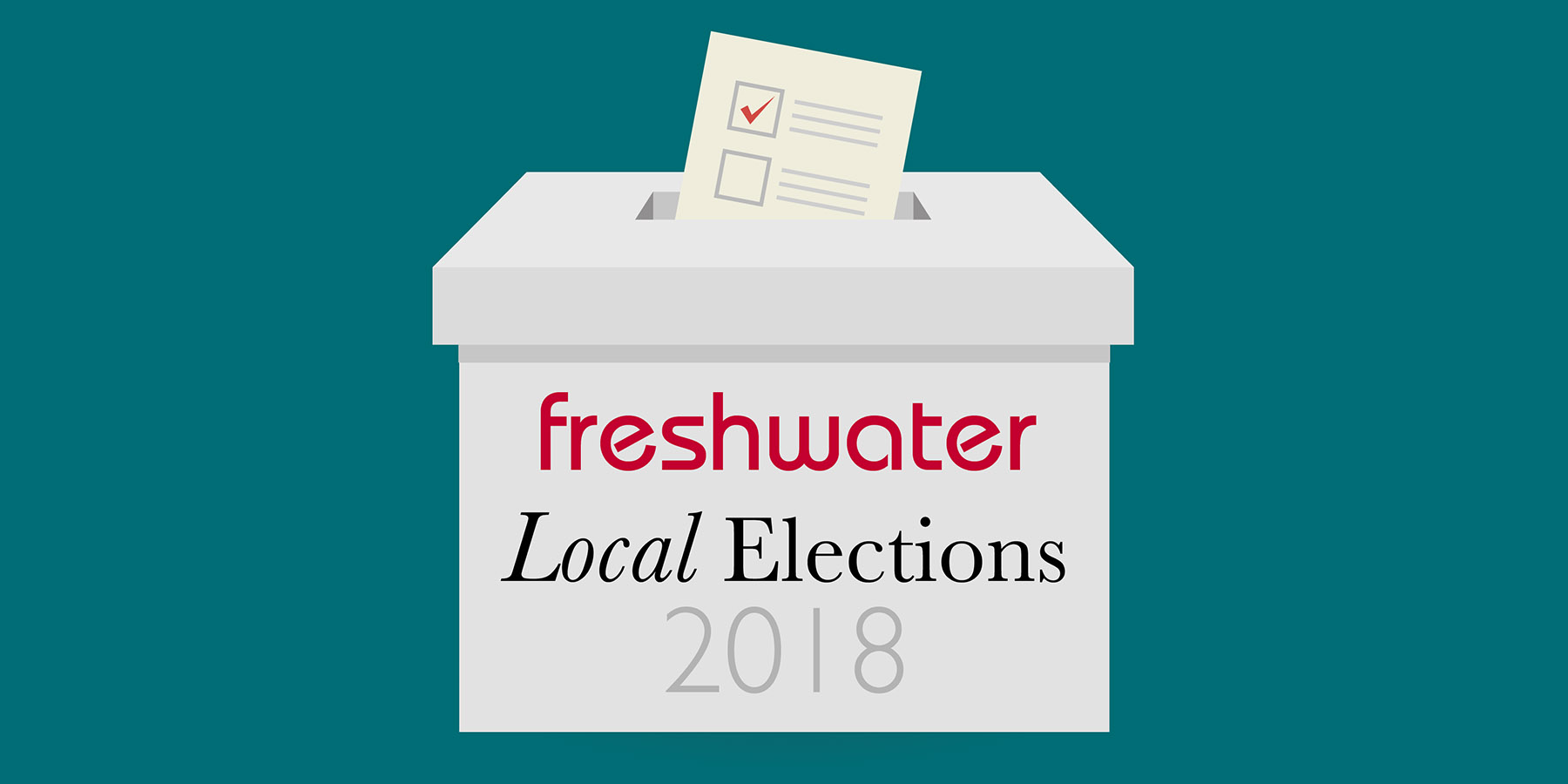
Freshwater’s guide to the local elections
Voters will head to the polls on Thursday 3 May for local government elections, in what will be the first test of electoral opinion in England since the 2017 general election. One hundred and fifty councils are there for the taking, as well as a number of directly elected mayor contests.
What are people voting for on 3 May?
Local elections will take place in all 32 London boroughs, as well as 34 metropolitan boroughs across England. All seats are up for grabs in Birmingham, Leeds, Manchester and Newcastle-upon-Tyne.
Elections are also taking place in 67 district councils, as well as 17 unitary authorities, including in Hull, Blackburn with Darwen and Derby.
There will also be mayoral elections for Hackney, Lewisham, Newham, Tower Hamlets and Watford, and a metro mayor election for the Sheffield City Region Combined Authority.
While not part of the local elections, 3 May will also see a parliamentary by-election for the seat of West Tyrone, which was vacated after the Sinn Fein MP, Barry McElduff, resigned.
No elections are being held in Scotland or Wales.
Local elections take place every year and local councils are responsible for providing a variety of vital services including housing, community health, transport, social services and waste and recycling.
A councillor’s term often lasts four years, but not all councils vote in the same year, hence why elections take place every year. Many larger councils split their councillors into thirds, electing one third in one year and another third the next. This year, for example, one-third of 30 metropolitan borough councils, 16 unitary authority councils, and 55 district councils, are being contested.
What are the different types of mayoral elections?
The Sheffield City Region Combined Authority is following in the footsteps of Greater Manchester, the Liverpool City Region, the Tees Valley, the West of England and the West Midlands to elect its first ever metro mayor. Metro mayors were made possible by new legislation that came into force in 2016, known as the Cities and Local Government Devolution Act.
These mayors lead combined authorities, which span whole city regions. Unlike the established type of mayor and local council leader, metro mayors have authority over the use of devolved powers across whole city regions, each including several local authorities. While powers vary depending on the individual devolution deal struck with the government, currently all have responsibility for housing and planning, transport, education and skills.
How are local officials elected?
Local government elections in England are decided through a First Past the Post system. This is where the candidate who receives the most votes wins: ‘winner takes all’.
Directly elected mayors are elected through the Supplementary Vote (SV) system. Under SV, voters can give both a first and second preference choice. If a candidate receives over 50% of the vote, then they are elected. However, if no candidate gets to the magic 50% mark, then the top two candidates go to a run-off and everyone else is eliminated. At this stage, the second preference votes of everyone whose favoured candidate is now out of the race come into play. If any of those second preference votes were for either candidate in the run-off, then these supplement the first round votes, and all are counted together. The candidate with the most votes after this process is declared the winner.
How can you vote?
To find out what election is happening where you live, and who the candidates are, enter your post code at www.yourvotematters.co.uk/elections-in-may-2018 .
To be eligible to vote on 3 May, you must have been registered to vote by Tuesday 17 April. If you have missed out this time, you can still register to vote for future elections by visiting www.gov.uk/register-to-vote .
What happened in 2017?
In May 2017, the Conservatives secured 11 councils and 563 seats, while Labour lost 382 seats and control of seven councils. Remind yourself of what else happened with Freshwater’s briefing at www.freshwater-uk.com/news/may-2017-local-election-results-briefing
Freshwater’s public affairs team provides political intelligence and policy analysis across sectors. Contact us to discuss political intelligence and monitoring services tailored to your needs, or sign up for a free trial of our daily transport and infrastructure monitoring report.
